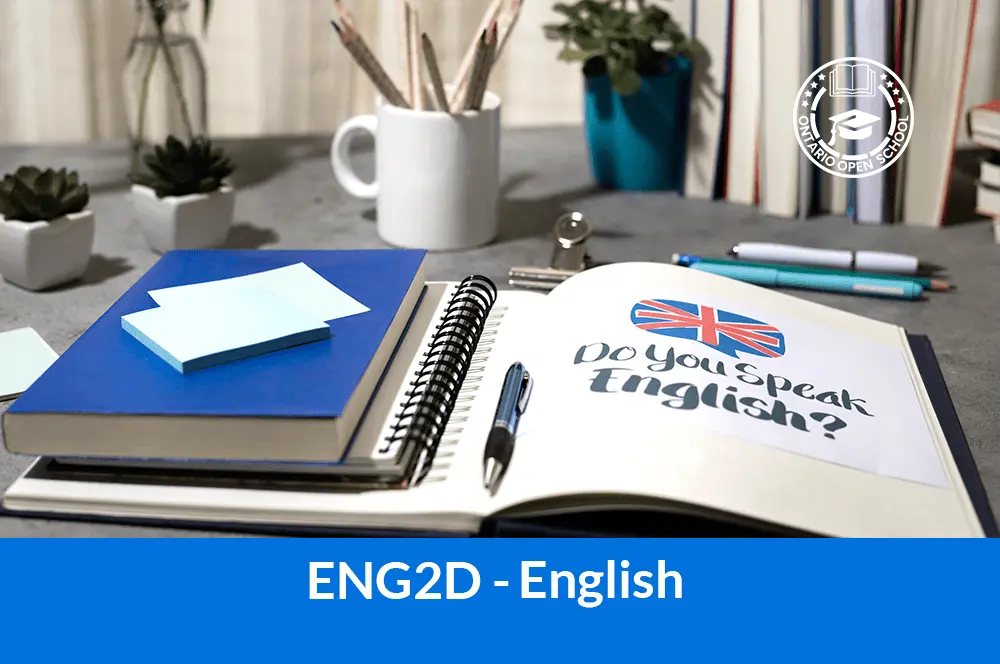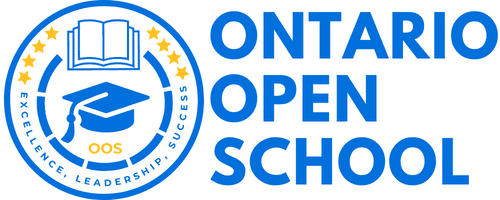- info@ontarioopenschool.com
- 647-494-4499
-
Unit 100 - 29 Gervais Drive, North York, ON.
M3C 1Y9
Copyright 2024 Ontario Open School Inc. All Rights Reserved.
This course is designed to extend the range of oral communication, reading, writing, and media literacy skills that students need for success in their secondary school academic programs and in their daily lives. Students will analyze literary texts from contemporary and historical periods, interpret and evaluate informational and graphic texts, and create oral, written, and media texts in various forms. An important focus will be on the selective use of strategies that contribute to effective communication. This course is intended to prepare students for the compulsory Grade 11 university or college preparation course
Unit Order | Unit Name | Suggested Time |
|---|---|---|
| Unit 1 | Poetry: Students will read a wide variety of poems and look at the techniques that poets use including poetic devices such as metaphor, verbs, similes, apostrophes, stanza length, powerful language, and how poets engage the readers’ senses. Students will write their own poems, they will hear poems read, and they will gain awareness of what makes effective delivery. Students will complete three polished writing assignments in this unit, search for inspiring poetry performances online, and make a video of their own spoken poetry. | 27 hours |
| Unit 2 | Othello: In this unit students will read Shakespeare’s Othello, exploring the eternally relevant themes of militarism, personal conflict, ambition, and pride. Assignments include one that deals with imagery in the play, a speaking assignment giving advice to the characters, an assignment about irony, and a unit culminating essay. | 23 hours |
| Unit 3 | Animal Farm: Students will read the story and complete the assigned work. | 23 hours |
| Unit 4 | Media Studies: Students will read multiple articles and watch videos. In doing so, they will explore themes such as gender inequality, racism, local history, and maturation. Students will also produce several pieces of writing, one of which is a formal essay in which they will provide quotations from the text, properly cited in the body of the essay as well as at the end in a Works Cited page. | 27 hours |
| Final Evaluation 30% | Final Project Final Exam | 8 hours 2 hours |
| Total | 110 hours |
A wide variety of instructional strategies are used to provide learning opportunities to accommodate a variety of learning styles, interests and ability levels. These strategies include, but are not limited to:
Purpose
The primary purpose of assessment is to improve student learning. Assessment relates directly to the expectations for the course.
A variety of assessments for and as learning are conducted on a regular basis to allow ample opportunities for students to improve and ultimately demonstrate their full range of learning and for the teacher to gather information to provide feedback. Assessment tasks relate to the success criteria set out in lesson plans. Success criteria allow students to see what quality looks like.
Evaluation is the process of judging the quality of student work in relation to the achievement chart categories and criteria and assigning a percentage grade to represent that quality. Evaluation is based on gathering evidence of student achievement through:
Assessment for Learning – we provide feedback and coaching. Assessment FOR Learning is the process of seeking and interpreting evidence
for the use of learners and their teachers to decide where the learners are in their learning, where they need to go, and how best to go there.
Assessment as Learning – we help students monitor progress, set goals, reflect on their learning
Assessment AS Learning is the process of the explicit fostering of students’ capacity over time to be their own best assessors, but teachers need to start by presenting and modeling external, structured opportunities for students to assess themselves.
Assessment of Learning – we use assessments to provide evaluative statements about student achievement. Assessment OF Learning is the assessment that becomes public and results in statements of symbols
(marks/grades/levels of achievement) about how well students are learning. It often contributes to pivotal decisions that will affect students’ future.
ASSESSMENT TOOLS
Assessment and Evaluation Strategies
| Units | Duration | Overall Expectations | AFL | AAL | AOL | K
25% |
A
25% |
C
25% |
T 25% |
||
| 70% | A | 30 hours | A1-A3 | Student-Teacher Conferencing | Peer Assessment | Poster Presentation | √ | √ | √ | √ | |
| B | 25 hours | B1-B4 | Worksheet
Class Discussion |
KWL Chart | Unit Test
Class Discussion |
√ | √ | √ | √ | ||
| C | 25 hours | C1-C4 | Worksheet
Pair Discussion |
Learning Log |
Unit Test Written Assignment |
√ | √ | √ | √ | ||
| D | 30 hours | D1-D4 | Homework
Student – Teacher Conferencing |
Reflective Discussion | Unit Test
Portfolio Assignment |
√ | √ | √ | √ | ||
| 30% | A1-D4 | Final Evaluation 30% |
√ |
√ |
√ |
√
|
|||||
Resources
Growing Success: Assessment, Evaluation and Reporting in Ontario Schools (2010)
http://www.edu.gov.on.ca/eng/policyfunding/growSuccess.pdf
Animal Farm
Canadian Encyclopedia of Poetry
Othello
Moodle Website
Dictionaries, Thesaurus etc.
Various Daily Newspapers, Magazines, and Periodicals
http://www.breathitt.k12.ky.us/userfiles/46/Classes/7161/The%20Monkeys%20Paw%20pdf.pdf
https://www.google.ca/#q=how+much+land+does+a+man+need+pdf
https://www.google.ca/#q=two+brothers+by+leo+tolstoy
https://englishmethods.wikispaces.com/file/view/Complete+Unit+Plan+2.pdf
Grading
Weighting of categories
| Knowledge/Understanding | Thinking/Inquiry | Communication | Application |
| 25% | 25% | 25% | 25% |

Course Grade | Grade 10 |
|---|---|
Course Code | ENG2D |
Course Category | English |
Course Type | Academic |
Course Delivery | Online |
Course Duration | 110h |
Course Credit | 1.00 |
Copyright 2024 Ontario Open School Inc. All Rights Reserved.
